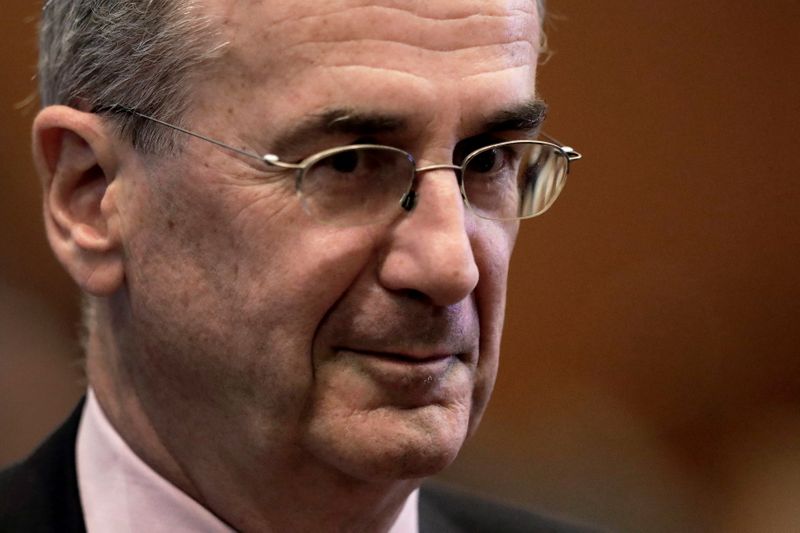PARIS (Reuters) - The governor of France's central bank on Friday told President Emmanuel Macron that the country's heavy public debt, bloated by spending to safeguard jobs and growth during the pandemic, posed a challenge to the economy but could not be cancelled.
In his annual letter to the president, Governor Francois Villeroy de Galhau said easing the debt burden would need time, economic growth spurred by investor-friendly reform and more efficient public spending.
"Cancelling the debt is not an option," the governor wrote.
Villeroy said this did not mean fiscal austerity.
"It is about striving for stability, first fiscal stability, by excluding tax increases and also cuts that we cannot finance, and secondly stability in the volume of public spending," he continued.
France went into the pandemic with public debt at 100% of national output, exceeding the euro zone average, and is projected to close 2021 at close to 120% of GDP. Meanwhile, the government forecasts a public deficit of 9.4% this year.
The European Commission has said it will suspend borrowing limits for EU governments for a third year in 2022 to aid the COVID-19 pandemic recovery.
The Stability and Growth Pact - the set of fiscal rules designed to stop EU countries spending beyond their means - needed amending in a way that neither abandoned the pact's core principles nor remained fixated on an outdated cap, Villeroy said.
"The definition of sustainable debt has evolved," he wrote.

The governor reaffirmed his view that the pandemic recovery remained stronger than anticipated a year ago, forecasting a 10% growth over 2021 and 2022 combined, and said it should not be significantly impacted by the spread of the new Delta variant of the coronavirus.
"In mid-2021, the bottleneck on growth is in fact not due to insufficient spending but with the reappearance, already, of difficulties with recruitment," the governor said. "There is hardly any reform more important than those that increase the quantity and quality of labour in the market."